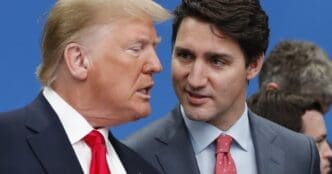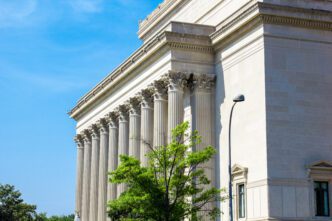In a crucial diplomatic move, two Canadian Cabinet ministers have traveled to Palm Beach, Florida, for significant discussions with the incoming administration of Donald Trump. These talks focus on addressing border security and trade as Trump’s statements cast uncertainty over future tariffs on Canadian goods.
Finance Minister Dominic LeBlanc and Foreign Minister Mélanie Joly are leading these strategic discussions, aiming to mitigate the impact of potential tariffs threatened by President-elect Trump. According to Jean-Sébastien Comeau, a spokesperson for LeBlanc, the ministers are eager to expand upon previous talks between Canadian Prime Minister Justin Trudeau and Trump.
LeBlanc has already been in contact with Tom Homan, Trump’s incoming ‘border czar,’ to align on Canada’s border security strategies. These discussions are part of a broader initiative to protect Canadian economic interests and address U.S. concerns about migration and drug trafficking.
The Canadian ministers plan to highlight Canada’s commitment to combating fentanyl trafficking and illegal migration. They are also emphasizing the adverse effects that a proposed 25% tariff on Canadian products could have on both countries’ economies.
While Trump’s transition team has not yet responded to communication requests, his comments remain a point of concern for Canada. Trump has previously mistakenly referred to Trudeau as the governor of the 51st state, illustrating tensions in the relationship.
Addressing concerns over drug and illegal migration flows, Canada notes the significant discrepancies between the U.S.’s borders with Canada and Mexico. U.S. customs reported significantly higher fentanyl seizures at the Mexican border compared to Canada. Additionally, encounters with migrants at the Canadian border are substantially fewer than those at the Mexican border.
On the trade front, Canada aims to clarify misunderstandings about bilateral trade deficits. Canada exported significant energy resources to the U.S., contributing to trade figures that Trump has misunderstood as subsidies. A large portion of U.S. crude oil and electricity imports come from Canada, with daily cross-border trade amounting to billions.
Despite the complexities, Canadian officials express optimism about reaching a mutual agreement. The emphasis remains on maintaining a strong economic relationship, with Canada being a top export destination for numerous U.S. states.
The upcoming discussions in Palm Beach are a pivotal step in maintaining and enhancing U.S.-Canada relations. As the new administration takes office, Canada is committed to fostering cooperation to ensure economic stability and security for both nations.
Source: Abcactionnews








